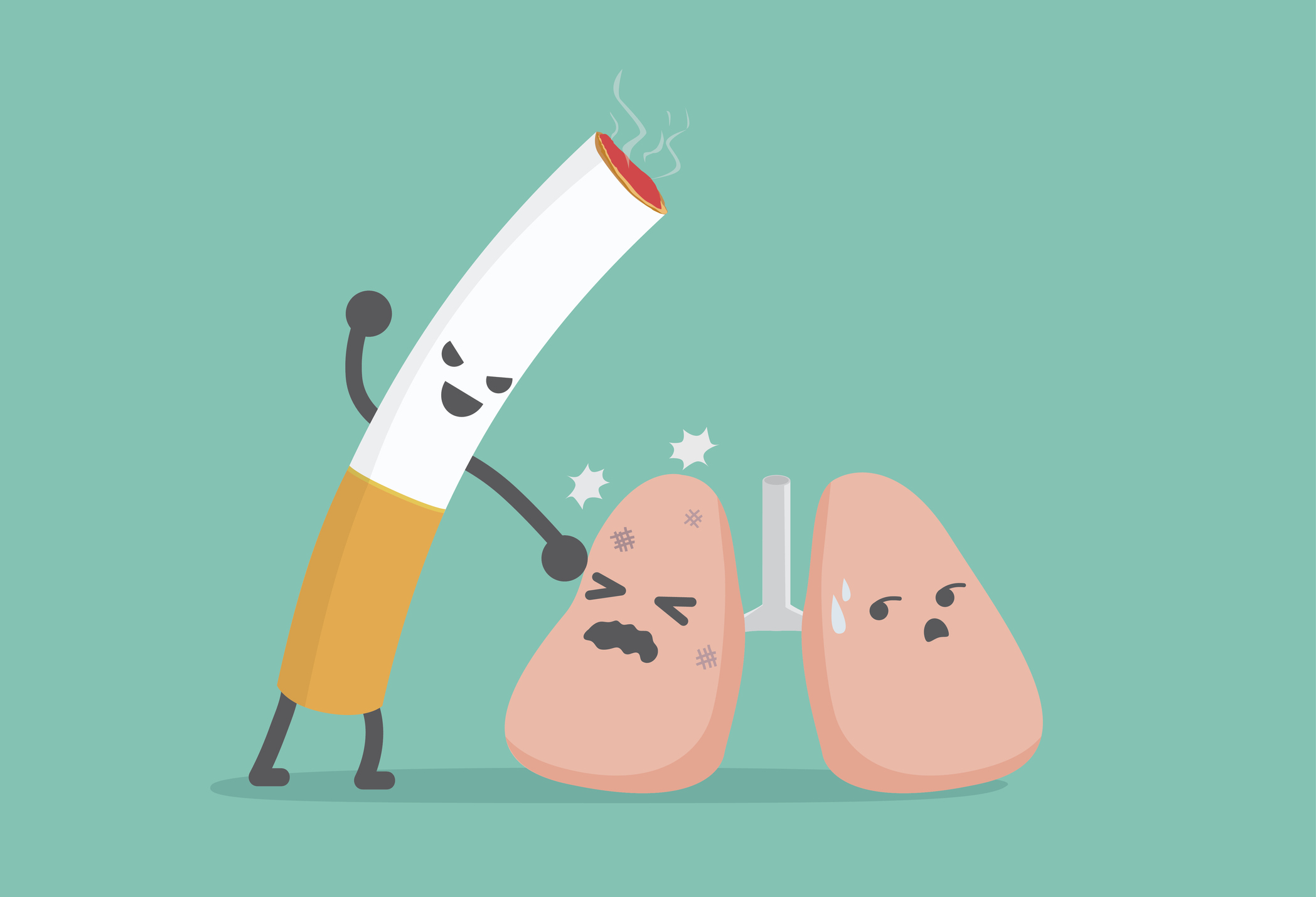Are Cigarettes A Classy Way To Commit Suicide?
By: Joy Stephenson-Laws, J.D., Founder

Lung cancer was again in the news recently!
Conservative radio talk show personality Rush Limbaugh told his listeners that he had been diagnosed with Stage 4 advanced lung cancer. (A few days later he was awarded the Medal of Freedom).
Receiving this type of diagnosis is devastating. Sadly, it is an important reminder that lung cancer continues to kill more people than colon, breast and prostate cancers combined. In fact, lung cancer is responsible for roughly one of every 15 deaths in the United States. It is the second most common cancer among both men and women – breast cancer is more common with women and prostate cancer with men.
Mr. Limbaugh’s announcement hopefully will serve as a wake-up call to those who believe and claim, as he had done on his radio show, that smoking does not cause lung cancer. In fact, the well-known commentator had claimed that there was no conclusive proof that nicotine (one of the principle chemicals founds in tobacco smoke) is addictive or that cigarette smoking causes emphysema, lung cancer or heart disease. He also said it was a “myth” that secondhand smoke causes illness or death. If you still smoke and have this type of wishful thinking, you need to believe that research has clearly proven that nicotine is as addictive as cocaine, heroin or amphetamines. And studies continue to confirm that some 80 - 90 percent of lung cancers are caused by smoking.
All this is pretty compelling proof, in my opinion.

Lung Cancer Myth-Busting
The number of new lung cancer diagnoses continues to decrease, along with the number of lung cancer deaths, because more people have quit smoking. But the numbers are still alarming.
According to the American Cancer Society, during 2020 there will be an estimated 228,820 new cases of lung cancer and over 135,000 deaths from lung cancer in the United States. It is mostly an “older person’s” disease, with most people being diagnosed with lung cancer over the age of 65 (the average age of diagnosis is 70). Black men are about 15 percent more likely to develop lung cancer than white men, while the rate is about 14 percent lower in black women than white women.
And, while we’re doing some myth-busting about lung cancer, it’s also worth mentioning that contrary to popular belief, your genes have very little to do with whether you will or won’t develop lung, or other cancers, during your lifetime. In fact, around 90 percent of cancers develop without genes that may predispose you to cancer. The takeaway from this is that lifestyle matters more for reducing your lung and other cancer risk.
Even though new cases of lung cancer and the number of lung cancer deaths are declining, research continues to suggest ways to better prevent, detect and treat this killer.
On the prevention front, avoiding and quitting smoking continues to be, by far, the best way to fight lung cancer. Everyone who still smokes can make the decision to quit. It’s important to remember that no matter how long you or a loved one may have been smoking, quitting – even after years of doing so – still brings enormous benefits. For tips on how to quit (and even more reasons why you should), check out these pH Labs blogs. And, it goes without saying that if you don’t smoke, don’t start.
Also, do what you can to avoid being exposed to secondhand and even thirdhand smoke as well as environmental factors that can increase your risk for lung cancer. These include radon gas, which is the leading cause of lung cancer in nonsmokers; workplace carcinogens such as asbestos, diesel exhaust and a variety of chemicals; and air pollution, which can carry the same risk for developing lung cancer as second or thirdhand smoke. If you have any type of lung disease, such as chronic bronchitis or asthma, make sure to talk with your doctor on how to best manage them since having such a disease can increase your risk of lung cancer to up to 100 percent.
As with other cancers, the sooner that lung cancer can be detected, the better the chances for successful treatment. For years, a chest x-ray had been the most common way to find indications of lung cancer since there usually are no symptoms, such as a persistent cough or coughing up blood, in its earliest stages. So being able to detect it early, especially in people who may have a heightened risk due to their smoking history, has been a focus of research. Now there is evidence that screening with spiral computed tomography (CT) holds promise for reducing the risk from lung cancer when compared to standard x-rays. Unlike a tradition CT scan, this procedure uses a faster machine which spins continuously around the body.
Other new developments in detection include tests that look for cancer cells in saliva as well as tests that may able to identify changes in lung cell DNA that could indicate cancer.
Another promising technology is called autofluorescence bronchoscopy, which uses special equipment to look for abnormal areas in your airway that show up more clearly under fluorescent light versus white light. Last, but certainly not least, is the use of computer-guided bronchoscopes to biopsy the hard-to-reach areas of the lung.
There also have been promising developments in treating lung cancer that are worth mentioning. Of course, not getting lung cancer in the first place is ideal but having better treatment options can increase the probability of a successful a treatment outcome. Some of these include video-assisted surgeries which can reduce hospital and healing time; robotic-assisted surgery, which may offer advantages over traditional lung cancer surgery; and real-time tumor imaging, which helps doctors better pinpoint where a tumor is as a person inhales and exhales, which, in turn, can increase surgical precision as well as determine if a tumor is eligible for surgical removal.
Researchers are also developing new drug therapies that specifically target lung cancer cells while not affecting healthy cells. These therapies include immunotherapy drugs and are designed to help an individual’s own immune system fight cancer. Some studies are also looking at whether combining radiation with immunotherapy can benefit patients with lung cancer who can’t have surgery.
How To Be Proactive?
While research has yet to identify specific foods or combinations of nutrients that clearly and demonstrably reduce lung cancer risk, studies continue to suggest that up to 30 percent of cancers may be linked to poor dietary habits. In other words, while there is no “magic food” for preventing cancer, not eating correctly and not having a healthy lifestyle in general may greatly increase your risk for developing any given cancer. This is especially true for foods that include phosphates, which are known to increase cancer risk. Other things you can do (in addition to quitting smoking if you smoke, of course) to reduce your lung cancer risk are to eat a primary plant-based diet. You should consider watching your sugar intake, eating foods with magnesium, selenium, zinc, copper, iron, sulfur and getting enough vitamin D.
You may also want to talk with your doctor about whether or not aspirin therapy may help reduce your lung cancer risk since research studies suggest that it may also be helpful in cancer prevention.
Enjoy your healthy life!
The pH professional health care team includes recognized experts from a variety of health care and related disciplines, including physicians, attorneys, nutritionists, nurses and certified fitness instructors. This team also includes the members of the pH Medical Advisory Board, which constantly monitors all pH programs, products and services. To learn more about the pH Medical Advisory Board, click here.







